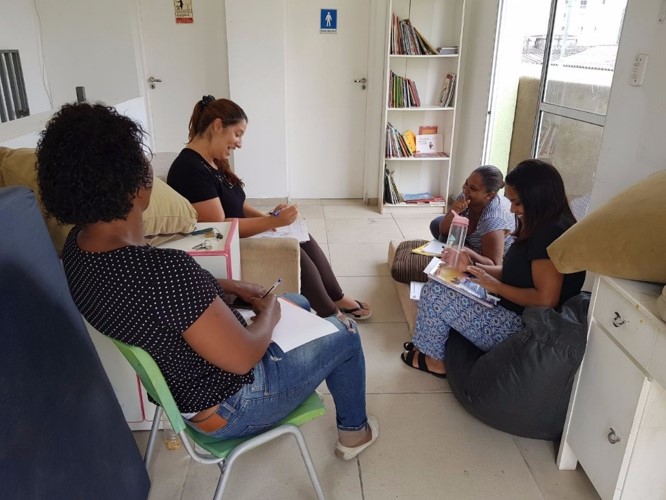
Action Learning Brings “Real Change” to Children’s House of Santo Amaro
The Casa da Criança de Santo Amaro (CCSA) is a non-profit organization assisting children and adolescents in situations of social vulnerability. Its mission is to support the development and training of these small citizens through its three services: Institutional Reception of Children and Adolescents (SAICA), Home House and School Shift Period (CCA). The organization intends to offer a warm environment, based on respect and affection, that enables the integral development of the children and adolescents.
The CCSA is composed of multidisciplinary professional and volunteer teams. The management staff is formed of a President and 11 directors, all volunteers, who usually follow up the routine activities of the organization. CCSA’s main challenge is to restructure activities, establish new responsibilities and competencies, integrate volunteers into administrative decisions, identify key processes and prepare for the succession process of the board. A process of professionalization of the house management began four years ago, reducing conflicts between the Board, Staff and Volunteers.
The resources are allocated to the day-to-day issues of the entity leaving in the background investment in solutions and management alternatives. The team decided to start the Action Learning program by the CCA. As a training opportunity for Action Learning Coaches, aligned with the WIAL mission, we agreed about a project with 10 Action Learning sessions. Each session was 2 hours and took place between April and July 2017. We put focus on the group diversity with representatives of the employees, members of the board and volunteers. Beatriz, who is the current president, director in charge of human resources and the coordinator of the service participated in all the meetings.
Problems and Actions We decided to work on the problems raised by the group in each session and the problem was chosen in a democratic and consensual way. Many problems were raised, such as lack of clarity in the processes, lack of transparent rules for hiring new employees, lack of clarity regarding the role and rules for volunteers’ work, lack of information flow among the different groups of workers and staff, bad communication among staff , presidency, and volunteers. At each meeting, the problems were explored and another vision emerged, more comprehensive and involving everyone, that facilitated the generation of actions for respective solutions.
Learnings Participants described the key learning: the importance of sharing problems, listening to each other with no judgment. Sometimes, a problem has a simple solution and looking at it from different perspectives is helpful to see the solution. Participants noted their progress throughout the process and realized that nowadays the problems are discussed more naturally. Everyone related with the problem is involved in a participative way. They know that there is still a long way to go, but they have been awakened and helped to think about their own problems.
Beatriz’s testimonial (President of CCSA) Since mid-April, CCSA employees were awarded a collective coaching program called the WIAL Action Learning. A methodology for solving complex, important and urgent problems and developing leadership skills. The format is brilliant because it allows small groups to think about a real problem in a deep but objective way. From consensus on the problem or challenge, participants create a plan of action and act on what is necessary for its implementation. What fascinated me the most is the way that they approach the problems: 1- always present a real problem. 2 – the groups are composed by one or more members of each area (without established hierarchy) 3 – solutions emanate from the group and an action plan is established at each meeting. 4 – everyone can express themselves by creating an environment that is both free and respectful.
The CCSA staff experience is very productive and has brought a real change. These changes were perceived in the day-to-day life of the institution, such as when each one began to address their problems and most importantly the way in which people came to listen to the other. A genuine listening.

